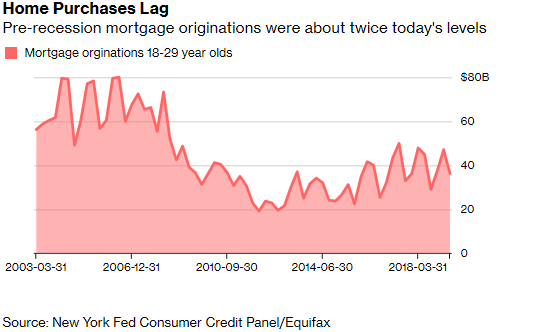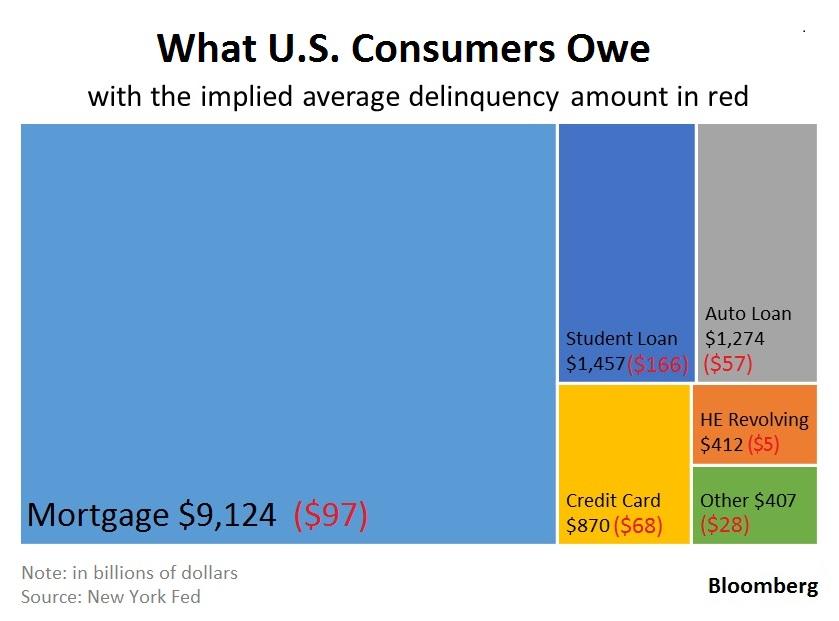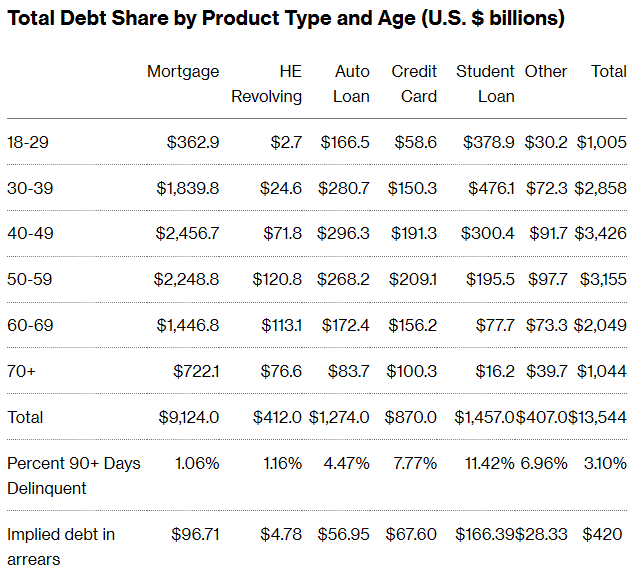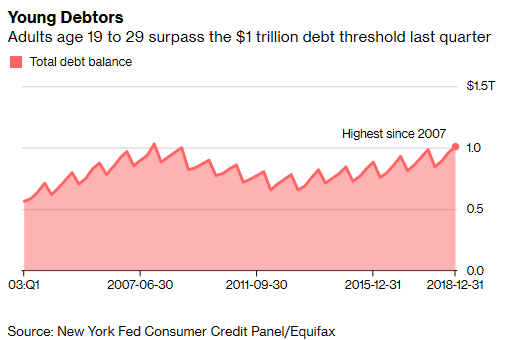Debt held by Americans aged 19 to 29-years-old exceeded $1 trillion at the end of last year, according to Bloomberg, citing the New York Federal Reserve Consumer Credit Panel.
The debt load marks the highest exposure for the group since late 2007 at a time when younger adults under 35-years-old have decreased their spending compared to previous generations. A Friday University of Michigan survey determined that this was likely due to weakened job prospects, student loans and delayed marriage.
With millennial consumers not consuming, several policies to boost young adult spending have begun to enter the political dialogue, such as student loan debt forgiveness, according to the director of the University of Michigan consumer survey, Richard Curtin.
Student loans make up the majority of the $1,005,000,000,000 owed by this cohort, followed by mortgage debt. New mortgages among young adults today remain quite a bit below levels incurred in the early 2000s. This may suggest adults are waiting longer to buy homes and may opt to rent for a longer period of time than previous generations. -Bloomberg

(Click to enlarge)
The lion's share of overall consumer debt is mortgage debt - however, student loan debt, the second largest consumer debt segment, is growing much faster at a rate of 102 percent since 2009 vs. 3.2 percent for mortgages.
Student loans are the second largest consumer debt segment and surpassed home equity revolving debt, auto loans and credit card debt balances shortly after the recession ended.
At the end of last year, auto loans were the third largest portion of debt composition in the U.S. followed by credit card debt. Overall consumer debt reached a record $13.5 trillion. -Bloomberg

(Click to enlarge)
Peak debt for more Americans occurs during mid-life years and typically declines as people age.
What's worrisome, according to the report, is that implied student loan debt delinquencies exceeding 90 days dwarf other loan type categories.
"Once a person is the subject of third party collections from their student loan delinquencies, their credit profile will be hindered for years. Missing a student loan repayment can also harm an individual's chances of getting a mortgage," notes Bloomberg.
Student loans constitute around 40 percent of the total debt balance of 90+ day delinquencies for implied debt in arrears.

(Click to enlarge)
By Zerohedge.com

















